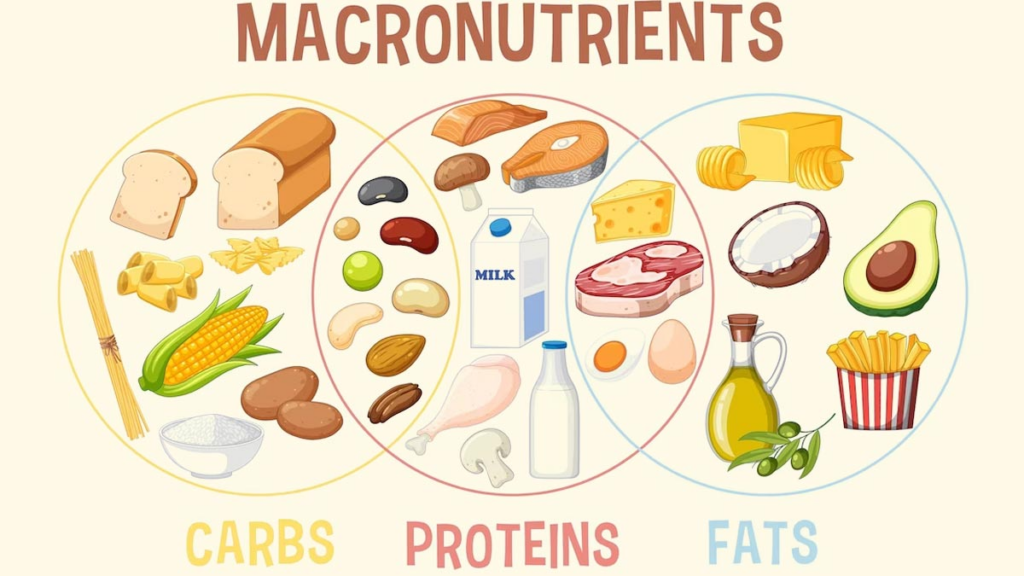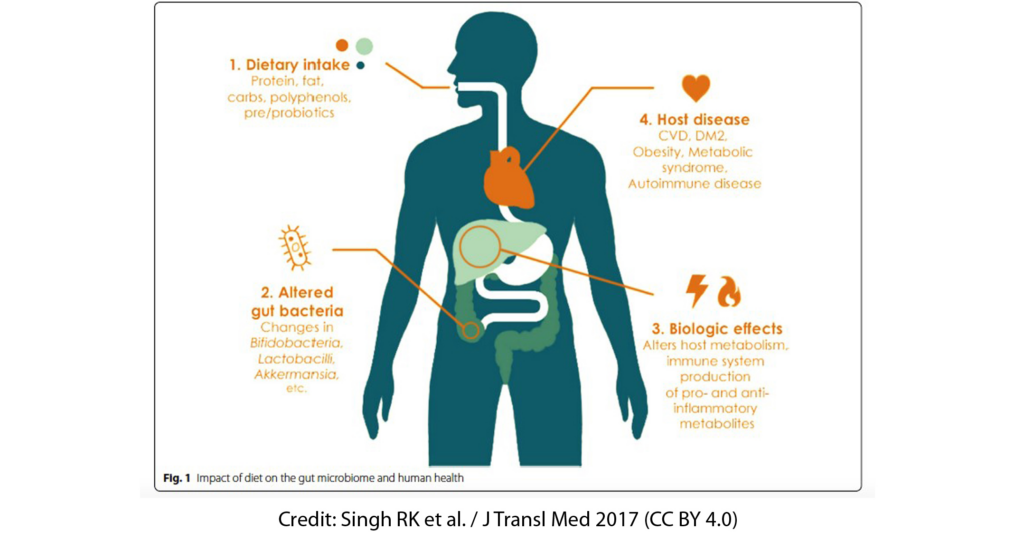In a world saturated with fad diets, weight loss supplements, and conflicting health advice, the pursuit of a healthier lifestyle can be a daunting task. Many individuals embark on the journey to shed excess pounds with the hope that simply improving their dietary habits will lead to successful weight loss. The question that often arises is: How likely is it that just eating better will help me lose weight?
In this comprehensive exploration, we will delve into the intricate relationship between nutrition and weight loss. We’ll uncover the scientific principles behind the connection, examine common misconceptions, and provide practical insights into the role of a balanced diet in achieving sustainable weight loss.
Understanding the Basics: Calories In vs. Calories Out

At its core, weight loss is fundamentally tied to the concept of calories in versus calories out. This principle dictates that to lose weight, one must expend more calories than they consume. Calories in represent the energy derived from the food and beverages we consume, while calories out encompass the energy expended through physical activity and metabolic processes.
Eating better plays a pivotal role in this equation. Opting for nutrient-dense foods that are rich in vitamins, minerals, and essential macronutrients not only supports overall health but also contributes to a sustainable caloric deficit. However, the key lies in striking a balance and being mindful of portion sizes to avoid overconsumption, even of healthy foods.
Quality vs. Quantity: The Importance of Nutrient-Dense Foods

While the quantity of calories consumed is undeniably crucial for weight management, the quality of those calories is equally important. Not all calories are created equal, and the nutritional value of the foods we eat can significantly impact weight loss.
Nutrient-dense foods, such as fruits, vegetables, lean proteins, and whole grains, provide essential vitamins and minerals while offering satiety with fewer calories. In contrast, consuming empty-calorie foods high in sugars, refined carbohydrates, and unhealthy fats can lead to excessive calorie intake without delivering the necessary nutrients.
Moreover, nutrient-dense foods contribute to improved metabolism and energy levels, enhancing the body’s ability to burn calories efficiently. Therefore, the emphasis on eating better extends beyond calorie counting to prioritize the nutritional quality of the foods consumed.
The Role of Macronutrients

A well-balanced diet comprises three primary macronutrients: carbohydrates, proteins, and fats. Understanding the role of each macronutrient is crucial for optimizing weight loss through dietary choices.
- Carbohydrates: Carbohydrates are a primary source of energy for the body. While they have been vilified in some popular diets, the key is to focus on complex carbohydrates found in whole grains, fruits, and vegetables. These sources provide sustained energy, fiber, and essential nutrients, supporting overall health and aiding in weight management.
- Proteins: Protein is essential for muscle repair, maintenance, and overall body function. Including lean protein sources, such as poultry, fish, beans, and tofu, in the diet can promote feelings of fullness and prevent overeating. Additionally, a higher protein intake can boost metabolism and preserve lean muscle mass during weight loss.
- Fats: Healthy fats, such as those found in avocados, nuts, seeds, and olive oil, are vital for various bodily functions, including hormone production and nutrient absorption. Incorporating moderate amounts of healthy fats into the diet can contribute to satiety and help control cravings.
Balancing macronutrients in a way that aligns with individual dietary needs and preferences is key to creating a sustainable and effective weight loss plan.
The Impact of Dietary Patterns on Weight Loss

Beyond individual macronutrients, the overall dietary pattern plays a significant role in weight loss success. Various eating patterns, such as the Mediterranean diet, DASH (Dietary Approaches to Stop Hypertension) diet, and plant-based diets, have been associated with positive health outcomes, including weight management.
These dietary patterns share common characteristics, such as an emphasis on whole, unprocessed foods, a variety of fruits and vegetables, and a balanced intake of macronutrients. Adopting a holistic approach to eating better, rather than focusing on isolated nutrients, can have a more profound and lasting impact on weight loss.
Common Misconceptions about Eating for Weight Loss

As individuals navigate the complex landscape of nutrition and weight loss, several misconceptions can hinder progress. Dispelling these myths is crucial for developing a realistic and effective approach to eating better for weight management.
1.Myth: Skipping Meals Leads to Weight Loss
Contrary to popular belief, skipping meals can have detrimental effects on weight loss efforts. While short-term calorie reduction may result in weight loss, skipping meals often leads to increased hunger, overeating during subsequent meals, and a slower metabolism. Instead of skipping meals, focusing on balanced, nutrient-dense meals and snacks throughout the day can promote satiety and support sustainable weight loss.
2.Myth: Certain Foods Can “Burn” Fat
The idea of “fat-burning” foods has permeated weight loss discourse, promoting the notion that specific foods possess magical properties that accelerate fat loss. In reality, no single food can miraculously melt away fat. Weight loss is a cumulative effect of creating a consistent caloric deficit over time. While some foods, such as those high in fiber or with thermogenic properties, can support metabolism, they are not a substitute for overall dietary patterns that prioritize balance and moderation.
3.Myth: All Calories Are Equal
The calories-in-calories-out equation oversimplifies the complexity of nutrition. While the quantity of calories matters for weight loss, the quality of those calories influences overall health and the body’s response to different foods. Focusing solely on calorie counting without considering nutritional content may lead to nutrient deficiencies and hinder long-term weight loss success.
4.Myth: Extreme Diets Guarantee Quick Results
Extreme and restrictive diets often promise rapid weight loss, but they are typically unsustainable and can have adverse health effects. These diets may lead to nutrient deficiencies, muscle loss, and a slowed metabolism. A more effective and sustainable approach involves making gradual, long-term changes to eating habits, promoting a balanced and enjoyable relationship with food.
Practical Strategies for Eating Better and Losing Weight

Armed with a solid understanding of the principles that govern nutrition and weight loss, individuals can implement practical strategies to foster healthier eating habits and achieve sustainable weight loss.
- Mindful Eating: Practicing mindful eating involves being present and fully engaged in the eating experience. This includes paying attention to hunger and fullness cues, savoring the flavors and textures of food, and avoiding distractions, such as electronic devices, during meals. Mindful eating can promote a healthier relationship with food, prevent overeating, and support weight loss goals.
- Portion Control: While the quality of food matters, portion control is equally important. Being mindful of portion sizes can prevent overconsumption of calories, even when choosing nutrient-dense foods. Using smaller plates, measuring portions, and avoiding second helpings can help regulate calorie intake and support weight loss.
- Hydration: Adequate hydration is often overlooked in the context of weight loss. Drinking water before meals can contribute to a feeling of fullness, reducing the likelihood of overeating. Additionally, staying hydrated supports overall health and can enhance the body’s ability to burn calories.
- Balanced Meals and Snacks: Aim for well-balanced meals and snacks that include a mix of carbohydrates, proteins, and healthy fats. This combination provides sustained energy, promotes satiety, and helps prevent cravings. Planning meals in advance and having nutritious snacks on hand can prevent impulsive, unhealthy food choices.
- Gradual Changes: Adopting a gradual and sustainable approach to dietary changes is more likely to yield lasting results. Rather than overhauling your entire diet overnight, focus on making small, incremental changes. This could involve incorporating more vegetables, choosing whole grains over refined grains, or swapping sugary beverages for water.
- Regular Physical Activity: While the focus of this article is on the role of nutrition, it’s important to acknowledge the synergy between a healthy diet and regular physical activity. Exercise contributes to overall well-being, supports weight loss, and helps maintain lean muscle mass. Combining a nutritious diet with regular physical activity enhances the likelihood of achieving and sustaining weight loss goals.
Conclusion
The relationship between nutrition and weight loss is complex, encompassing a combination of factors such as calorie intake, food quality, macronutrient balance, and overall dietary patterns. While eating better is a crucial component of successful weight management, it is not a standalone solution. The key lies in adopting a holistic approach that considers the nutritional content of food, portion sizes, and overall eating patterns.
Dispelling common myths about weight loss, such as the idea of “magic” foods or extreme diets, is essential for fostering a realistic and sustainable mindset. By embracing mindful eating, practicing portion control, staying hydrated, and making gradual, balanced changes to dietary habits, individuals can create a foundation for long-term success in their weight loss journey.
Ultimately, the likelihood of losing weight by eating better is high when combined with other healthy lifestyle choices, including regular physical activity, sufficient sleep, and stress management. It’s essential to approach weight loss as a holistic and individualized process, recognizing that there is no one-size-fits-all solution. With patience, consistency, and a focus on overall well-being, individuals can achieve and maintain a healthy weight that aligns with their unique needs and goals.






[…] Explore the science of weight loss through eating better. Learn how a balanced diet and nutritional choices can lead to lasting results. Start your journey to a healthier you today! […]